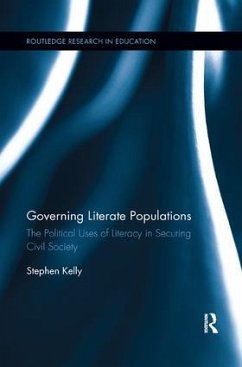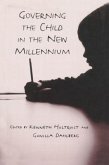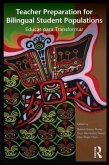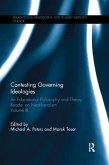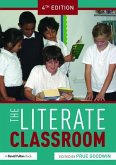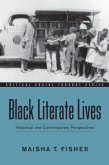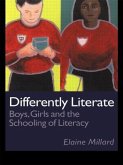Securing the hearts and minds of 'dangerous' populations is a major concern for governments across the world.¿Governing Literate Populations shows how 'governmentalities' have deployed education and literacy in different ways in order to protect their national, social, economic and geopolitical security interests. Presenting a Foucauldian Genealogy of literacy and education, Kelly argues that government apparatuses strategically contain the rise of complex social forces to protect homogenous cultural values. Kelly's work traces the development of the relationship between liberal governmentalities and the securitization of 'martial' literate citizenries from its beginnings in the Enlightenment, starting with Hobbes' Leviathan in 1651, through to the emergence of human security in 1994. He then examines the situation in Australia from 1995-2007, investigating political statements by the Howard Government and the insurgent Rudd opposition against the backdrop of the 'age of terror'. The conclusion takes another historical cut by considering how the political uses of literacy can be located in the texts of Plato, before examining how the conceptualization of literate subject as citizen of the state has come to be realized in the United Kingdom and the United States of America. Governing Literate Populations draws on data obtained from historical texts, including political and economic treatises, publications by NGOS, media sites, government policies and archived political speeches. As such, it will appeal to academics, researchers and postgraduate students examining education policy and the political uses of education, as well as literacy education and the history of education. Those with an interest in politics, sociology and history will also find this work a highly informative resource.
Hinweis: Dieser Artikel kann nur an eine deutsche Lieferadresse ausgeliefert werden.
Hinweis: Dieser Artikel kann nur an eine deutsche Lieferadresse ausgeliefert werden.

